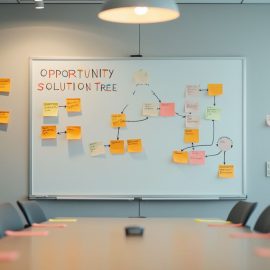

This article is an excerpt from the Shortform book guide to "Girl, Stop Apologizing" by Rachel Hollis. Shortform has the world's best summaries and analyses of books you should be reading.
Like this article? Sign up for a free trial here .
What skills should women develop if they want to stand out in the business world? Why is self-confidence one of the most important skills to practice?
Girl boss, author, and motivational speaker Rachel Hollis says that there are four skills for women that will help them succeed: self-confidence, persistence, effectiveness, and positivity. She says that women should use these skills as tools to further their lives and careers.
Continue reading to learn about the four skills.
Skills to Acquire
In her book Girl, Stop Apologizing, Hollis provides a list of universal skills for women that will take you from motivation to achievement. She defines a skill as any ability that you can learn and develop over time through intentional practice. The skills she lists are often conventionally viewed as character traits—confidence, for example. However, Hollis argues that if you can develop confidence and use it as a tool, then it is indeed a skill.
We will take a look at four universal skills Hollis believes will serve you best in the pursuit of your dream.
Skill 1: Confidence
Hollis makes clear that confidence is important to success because if you already believe that you’re bad at something, you’re unlikely to even attempt it. In her experience, there are three distinct areas where you can develop confidence: how you look, how you act, and who you hang out with.
- How you look: Develop a personal style that makes you feel incredible on the outside. The inside will follow.
- How you act: Fake it until you make it. You have to push your own boundaries in order to grow.
- Who you hang out with: If you surround yourself with confident people, it will rub off on you.
(Shortform note: Self-confidence is more valuable to success than most people realize. According to Psychology Today, self-confidence decreases fear and anxiety, increases motivation, builds resilience, improves your relationships, and allows you to connect to your authentic self.)
Skill 2: Persistence
Hollis states that nothing significant in her life came quickly. She stresses the importance of sticking to your plan and riding out challenges. To build persistence, Hollis says you need a total mindset shift. For every goal you have, prepare for the long haul, expect rejection, and avoid the trap of comparison.
(Shortform note: Angela Duckworth, author of Grit, analyzes in-depth the importance of perseverance (persistence) in the face of adversity. In her research, she found that grit was a greater indicator of future success than IQ. Duckworth defines grit as a combination of persistence and passion, so it stands to reason that having a strong “why,” or purpose you feel passionate about, and the willingness to fight for it is your best bet at achieving any dream.)
Skill 3: Effectiveness
Hollis advocates learning how to manage your time efficiently to get the most out of it. She recommends you take the following five actions:
- Replace your to-do list with an outcomes list (what are you trying to accomplish?)
- Evaluate your efficiency (is there a quicker way to get things done?)
- Use what helps you focus (music or a comfortable chair?)
- Avoid your biggest distractions (eliminate them instead of trying to ignore them)
- Be willing to adjust course (flexibility is key to recognizing opportunities)
(Shortform note: Cal Newport offers several strategies for increasing your focus to be more effective in his book, Deep Work. One strategy that he recommends is training your “focus muscles” by allowing yourself to be bored in situations where you would normally distract yourself. For example, if you’re waiting in line at the DMV, you might naturally reach for your phone. Instead, resist the urge and allow the boredom to happen. This is great focus training for your brain because you will develop increased control and discipline over your thoughts in the same way that an athlete controls their physical movements.)
Skill 4: Positivity
Hollis argues that by choosing positivity every day, you will recognize the abundance of opportunities and blessings at your feet. As a result, you will have greater success in any goal you aspire to accomplish. She acknowledges that we can’t control the hardships that come our way. However, she notes that we can control how we respond to these obstacles, disappointments, and catastrophes.
One way that Hollis believes you can practice positivity is to control your inner dialogue. Your running mental dialogue is the soundtrack to your life. She believes if you criticize or pity yourself, even if it’s just in your thoughts, these feelings manifest as a negative attitude. When you feel the negative inner dialogue creeping in, Hollis advises you to redirect the conversation in the same way that you could shift a conversation happening out loud.
| Toxic Positivity: When Is It Okay to Have Negative Vibes? While the benefits of positivity have been well-documented, it can be taken too far. Since the time this book was published in 2019, the topic of toxic positivity has garnered attention. Toxic positivity is the belief that we should feel positive emotions all of the time, regardless of the circumstance. Rachel Hollis has faced criticism for encouraging positivity to a level that many people find unhealthy. At the time this guide is being written, Hollis has not yet addressed this criticism. How do you know when positivity is healthy or toxic? It has been proven through numerous studies that people who have a positive outlook enjoy longer lifespans, less illness, and healthier relationships. As Mayo Clinic points out, however, there’s a difference between approaching situations with a solutions-mindset and ignoring life’s problems altogether. The latter is when positivity is actually false and toxic. |

———End of Preview———
Like what you just read? Read the rest of the world's best book summary and analysis of Rachel Hollis's "Girl, Stop Apologizing" at Shortform .
Here's what you'll find in our full Girl, Stop Apologizing summary :
- Rachel Hollis's lessons she learned while building a multimillion-dollar company
- Why "having it all" isn't something you should aspire to
- Why women need to stop trying to fit society's idea of a "good woman"






